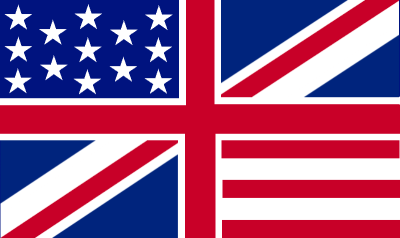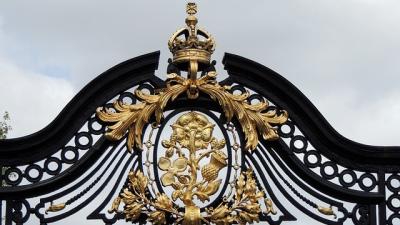Mandarin rule by Brahmins
A slow-motion transfer of power would seem to be afoot in the Anglosphere, moving from a heritage ruling class of white men and women to the children of successful Indian immigrants. The US Vice President, Mrs Kamala Harris, is Indian on one side. The UK has two high-profile Indian Brits, Prime Minister Mr Rishi Sunak (Hindu, also a billionaire, by marriage, about which see Ban Billionaires [LINK]), and the Home Secretary, Mrs Suella Braverman (Buddhist, incidentally). Never to be outdone by the Brits, Ireland has combined the powers of India and the Gay Community in Mr Leo Varadkar, the Prime Minister, or ‘Taoiseach’, as they mark it on the Emerald Isle. And, Scotland, forget-me-not Scotland, always nearly last to the punch, has just swapped a corrupt white fish, Mrs Nicola Sturgeon, for the ineffectual child of Punjabi Muslim migrants, Mr Humza Yousaf. He is the outlier but perhaps also portends the future, as we shall see in next month’s region report.
Thus, setting Scotland aside for now, as we all must do at times, the rest of the lot have sold themselves to the electorate by their purported competence in procedural matters, under the assumption that politics is an art that lends itself to leadership by a competent class of technocrats, rather than, say, by the wise or virtuous, or the priestly or the popular. In this way, they are descriptively and as-yet informally mandarins. In modern Britain, there is no equivalent of the exams that Chinese aspirants to the court of the Emperor had to pass, which also formed them into the original mandarin class. The nearest approximation in Europe is France with its Concours, and by way of French influence, Brussels. In Britain, the path to the top is littered with different sets of examination in stages. It usually begins with one form of non-standard schooling (‘public’ meaning highly private, or ‘independent’ meaning private, or where they still can be found, ‘grammar’ meaning more or less a public ‘Gymnasium’), then an Oxbridge-equivalent degree (so, Trinity College Dublin in Ireland or the Ivies in the US), plus demonstration of competence in a Profession: commonly law (Braverman, Harris), banking (Sunak), or medicine (Varadkar).
This last profession has historically been the gateway profession for Sub-Continental families attempting to start a new life in the West, or even a route through the upper-middle class and into the ruling elite. Harris’s mother was a doctor. Varadkar is the son of a doctor from Bombay. Sunak’s father is a medical doctor from the Punjab, and his mother ran her own pharmacy in England.
Overall this transition from a native set of leaders to the children of recent immigrants has been a bit unremarkable, and not often remarked on in the press. This is perhaps because the persons themselves are in many ways remarkably capable, setting aside whatever one might think of their various politics, from Braverman’s strident right-wing stances to Varadkar’s creative left-wing appeasement. And, they are not the least revolutionary. The Conservatives list Sunak and Braverman amongst their most conservative members, and Harris and Varadkar are peas in a pod with their local political parties’ leaders and bases.
But there is something else, too, a more uncomfortable truth about Indian society. It cannot go without saying that these Indian replacements for white men and women are on the whole rather white-leaning, both in skin tone and in the contemporary cultural meaning of ‘white’: they are not drawn from the lower orders of India. Not all are Brahmins, but none would seem remotely close to being descended from an ‘Untouchable’. And this has had at least one very negative consequence, mostly for certain other persons of Indian extraction, as the presence of Indians in the new professions in information technology has demonstrated. Information technology is the great industry that is dominated in places by certain Indians. According to a 2021 article on the matter:
‘30% of the Fortune 500 Companies have Indians as their CEOs. One-third of all the engineers in Silicon Valley (USA) are from India and 10% of the world’s high tech company CEOs are all Indians. Sundar Pichai of Google; Satya Nadella of Microsoft head the list of some very high profile Indian CEOs. Parag Agarwal is the latest to join this elite club when he became CEO of Twitter, and it hardly raised any Twitter because it was so predictable.’ (https://www.gulftoday.ae/opinion/2021/12/09/indian-ceos-making-it-to-the-top-league).
Because we think of immigrants often only as so many individuals, we tend to forget that when any large group of persons migrates they carry their culture and history along with their kin and kith, food and faith. In this case, one gets both curry and the caste system. The caste system as a founding myth of society was formally superseded in India in 1948. Practices associated with the it have been constitutionally forbidden in India since 1950. But like any entrenched practice, customary caste-inspired practices continue evident in everything from habits of dress to arranged marriages to professions commonly open or closed to persons, to religious practice, and to the uncomfortable truth for modern liberalism, skin colour. These continue in places like Kamala Harris’s California, where hiring practices at tech companies have exacerbated caste-based differences by the preference for persons from the castes of the hiring managers. The practices have apparently been so egregious that, in March, California passed Senate Bill 403, which designates caste as a protected category in the state of California.
This might be a small step towards pushing back against these lamentable practices. However, any push-back against this ancient cultural practice faces at least three obstacles. Chief among them is the precedent that India itself has forbidden the practices for over seventy years without coming close to eradicating them. As a result, there are now hundreds of thousands of non-lower caste Indians who are enjoying well-paid tech jobs and a few cases even running the nations of the Anglosphere. Then, there is a danger whenever the government puts its hand firmly on one side of the scale. Legally protecting ‘caste’ from being a means of discrimination might have the unintended consequence of the perpetuation the reality of the castes, and entrenching the sides who benefit or suffer from its legacy. Historically, it is unclear that legal affirmation of any similar contested social reality deescalates the conflict without serious knock-on effects. Think of laws about race (e.g., affirmative action in the United States) or gender issues (recently, Gender Self-ID in Scotland (about which see my country report here), which whatever their merits have served to accentuate and perpetuate divisions rather than reducing them.
Read also
The Heir to the Spares
In my previous Region Report I complained about the Yanks’ faux republicanism (see: LINK). In Blighty the problem is the reverse: false modesty, pretended irrelevance, and the snobby casualness of insisting on calling everyone by his first name, as if one could presume intimacy with anyone, anywhere, high or low, common or royal.
Vernon Rogers
Ban Billionaires! – Don't tax them, exile them to their yachts
Earlier this month the American president, Mr Joe Biden, proposed a minimum tax of 25% on billionaires. It is unclear whether such a proposal could ever gain traction in the land that invented the billionaire as a special class of modern man.
Vernon Rogers
Anglospherical: The Region Report on the Anglosphere - January 2023
National politics in the US has become crasser over the past six decades, and often the Republicans have been to blame for pushing the envelope. Richard Nixon’s paranoia forcing his resignation from the presidency or Newt Gingrich’s bellicose tenure as Speaker of the House (resulting also in a forced resignation) could serve as case-in-point.
Vernon Rogers
Anglospherical: The Region Report on the Anglosphere - April 2023
As we learnt in the March Region Report on the Anglosphere (LINK), Scotland does not want to be left behind in the race to replace heritage British leaders with those from the former British colonies of Asia.










Comments (0)